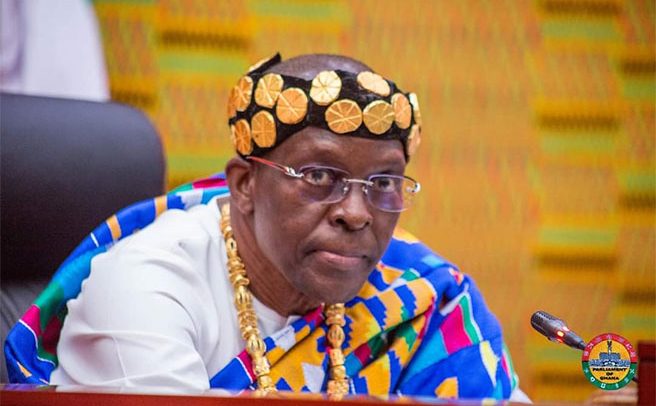Alban Sumana Kingsford Bagbin
SPEAKER OF Parliament, Alban Sumana Kingsford Bagbin, has said Parliament had the requisite quorate number when the contentious government’s flagship tax bill on electronic transactions, popularly known as E-Levy, was being put to vote to pass into law on Tuesday, despite the boycott by the Minority members.
According to him, walking out of the Parliament chamber ahead of a decision by the House does not affect the quorum needed since the work of MPs is not restricted to the chamber, but throughout the precinct of Parliament.
“I actually put the question after the walkout. That is different from attendance in Parliament. I am clear in my mind what has been in this House. And I can defend myself anywhere, even at the International Court of Justice.
“The fact that they walked out did not erase the fact that they were present in Parliament. Just the same way when you walked out and we came here and continued the issue of quorum was raised by this side, and that is quorum to conduct business and I made sure we counted and got 137.
“So that press conference that you [referring to the Majority] said we did not have a quorum was said in error. The same thing they are trying to do. They should be guided. This is not a Supreme Court ruling; that is the ruling by the Speaker,” he told MPs.
Earlier on, he had said, “The work of a Member of Parliament is not restricted to the floor of the chamber. Much of the work of Parliament is done at the committee level, and that is why when it is time for voting the bell is rung for 10 minutes, so that at the committee meetings, members can leave the committee meetings and come and vote.”
The Speaker continued, “The 10 minutes is used because of the practice in the House of Commons, where the farthest end to the chamber, the tram uses 10 minutes. That is why they use 10 minutes.”
“So, if you are present in Parliament, and you have agreed to vote, you have to join it and come and vote and go back to whatever you are doing, because you are still transacting parliamentary business. You can be on the floor, you can visit the washroom, you can go to attend to your constituents, you can be at the committee meeting, you are in Parliament,” Mr. Bagbin said.
“This must be known. Please, being in Parliament means being in the precinct of Parliament, and that is why service of process and the rest, we are not expecting that to be done.
“Again, the constitution did not say being present alone and voting. You can be present, but you can decide not to vote. You can be present, but you may be disqualified by law for voting on that issue. And you can be present, but you might have committed contempt of Parliament and Parliament had taken a decision on you and you may not be allowed to vote,” he submitted.
He added, “These are matters that are known to Parliament that are not known to the court. Let me add this. We need to up our game by improving our IT system, so that when you clock into Parliament you are recognised as having been present in Parliament.”
BY Ernest Kofi Adu, Parliament House


